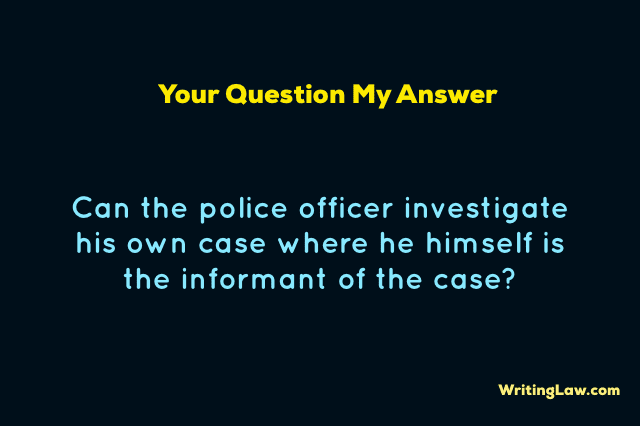
Law Question: Can the police officer investigate his own case where he himself is the informant of the case?
Answer: Yes, a police officer can be an informant in a case.
A police officer may always take information suo-motu of any case, be it a cognizable case or non-cognizable case. However, the police officer has the authority to arrest without a warrant only in cognizable cases and not in non-cognizable cases. In non-cognizable cases, the order of the Magistrate is required to arrest. In cognizable cases, police have the power to investigate, and that power is not questionable in any court of law. Reference of section 156 and section 157 of the Criminal Procedure Code made.
Mohan Law vs the State of Punjab, SC
In Mohan Law vs the State of Punjab, the Supreme Court has emphasized upon fair trial in a case. It is better if the informant and investigator are not the same person. But it is not applicable to cases prior to the Mohan Lal case. It will not have any retrospective effect. But the rule laid down in the Mohan Lal case is not a blanket fold law that totally curves out an investigator to be an informant. The interpretation of the law cannot be strict in this sense. Therefore it is good if they are not the same person, but if he is an informant, then it can’t be neglected as well.
Read Next: Role of Indian Police in Administration of Criminal Justice
- Article 334A of the Constitution of India - 14th April 2024
- Article 332A of the Constitution of India - 14th April 2024
- Article 330A of the Constitution of India - 14th April 2024







